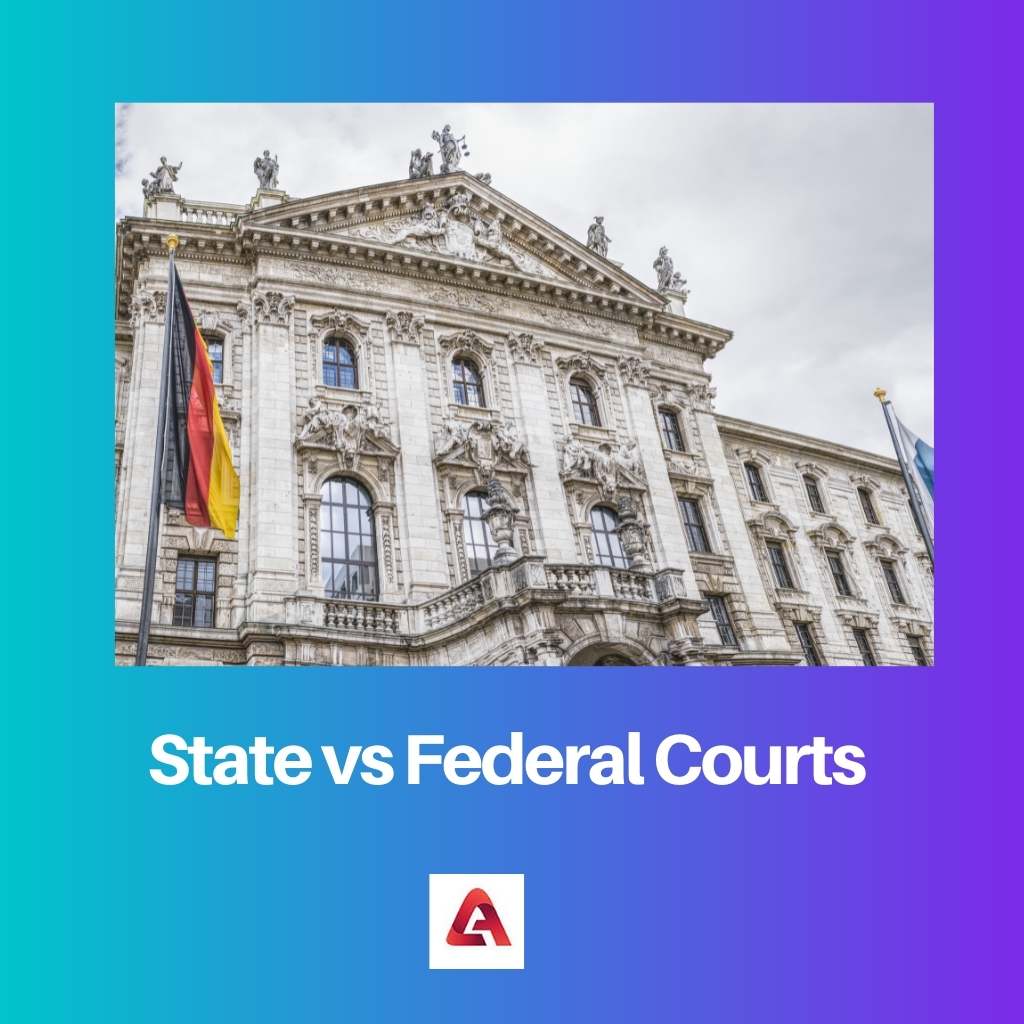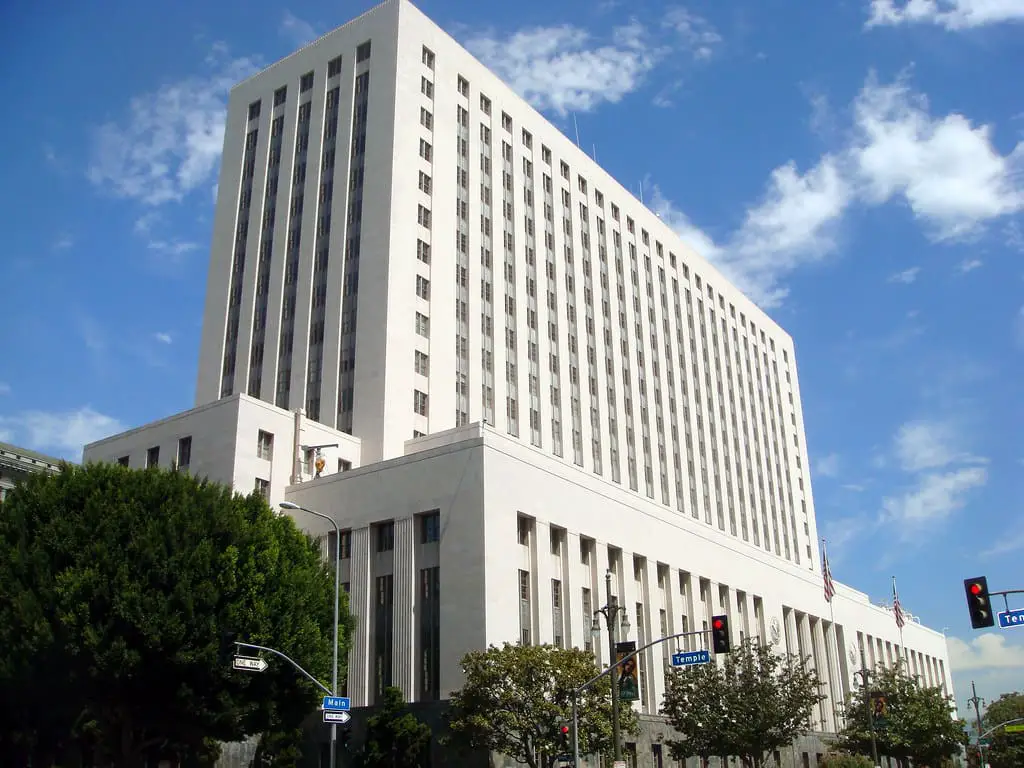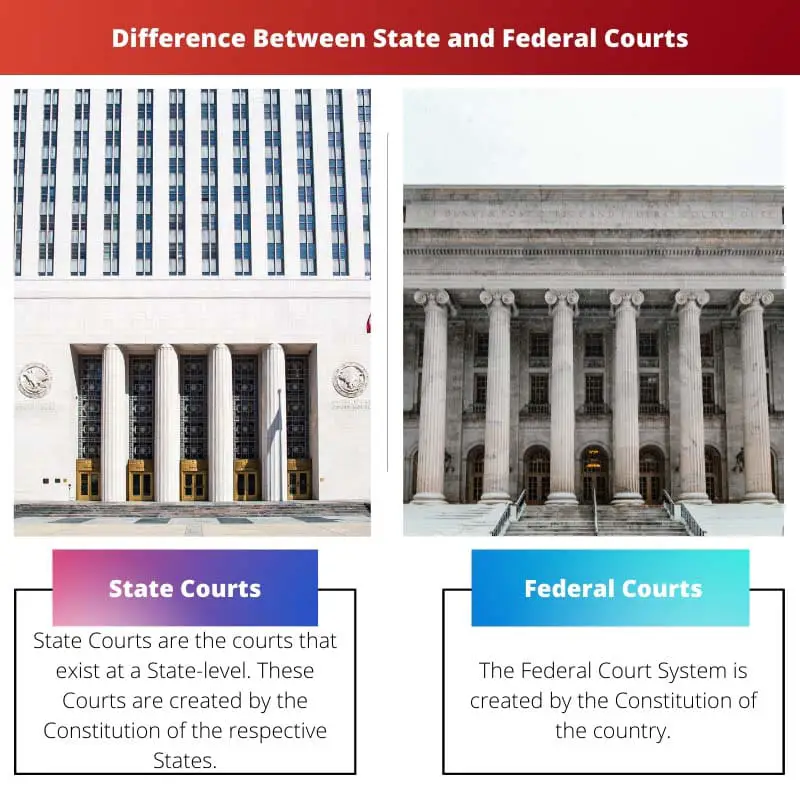While primitive ways of delivering justice still prevail in the nooks and corners of the world, most of us are part of a justice delivery system that employs modern techniques but still lags. The Court Structure in the US is fascinating yet a source of confusion.
Key Takeaways
- State courts handle most cases, including criminal matters, family law, and most civil cases, while federal courts deal with cases involving federal laws or constitutional issues.
- Federal courts have more limited jurisdiction and only hear cases meeting specific criteria, such as disputes between states or involving foreign governments.
- State court judges are elected or appointed by the governor, whereas federal judges receive appointments from the President and must undergo Senate confirmation.
State vs Federal Courts
A State court is a court that is established by individual states. A state court hears cases involving state laws. A federal court is a court that is established by the federal government and hears cases involving federal laws or disputes between parties from different states or countries.

State Courts are the courts that exist in a State-level. The Constitution of the respective States and the laws of those States create these Courts.
The Constitution of the country creates Federal Court System. They, too, have a similar hierarchy of Courts but at a federal level.
Comparison Table
| Parameters of Comparison | State Courts | Federal Courts |
|---|---|---|
| Operation | These courts are operative at a state-level | These Courts are operative at a federal-level |
| Created by | The respective State Constitutions and the laws of that State create these Courts | These Courts are created by the Constitution of the Country |
| Court of Appeals | Here the dissatisfied parties can approach the intermediate Court of Appeals. | The dissatisfied parties can approach the US Court of Appeals |
| Final Authority | The highest court in the State is the final authority | The final authority here is the Supreme Court |
| Matters Heard | Criminal, civil, and torts | In addition to criminal and civil. It deals with matters of constitutional importance. |
State Court System – YouTube
State Courts are the courts that exist at a State-level. The Constitution of the respective States and the laws of those States create these Courts.
There are various ways of doing it, and such ways are by conducting an election, sometimes the appointment of a judge is only for a few years, sometimes it is for life, and a combination of all these methods can also be applied to select the judge.
Furthermore, the matters that they entertain are also limited and not as vast as the jurisdiction of the Federal Courts. The cases that these courts entertain are mostly criminal or civil.
In the States, when the State Courts have to deal with matters or laws unique to their State, the Supreme Court of the State becomes the final authority.

What are Federal Courts?
These Courts have the final say in almost all matters of a federal nature. The Constitution of the country creates the Federal Court System.
If the judge involves himself in any activity that is unwonted for, then such a judge will be impeached. The Constitution of the country also lays down the procedure of such impeachment.
These courts also deal with matters that involve the interpretation of the Constitution. Any laws and treaties that we enter into are also a part of its jurisdiction.

Main Differences Between State and Federal Courts
- The appointment of the judges in the State Courts can be made by conducting an election, appointing a judge only for a few years or for life. In contrast, the judge in the Federal Courts is nominated by the President. Thereafter, their nominations are confirmed by the Senate.
- The State’s Supreme Court is the final authority when dealing with the interpretation of the State Constitution or laws. In Federal Courts, the US Supreme Court is the final authority in matters that aren’t unique to the states.

- https://heinonline.org/HOL/LandingPage?handle=hein.journals/sealr19&div=24&id=&page=
- https://www.degruyter.com/document/doi/10.4159/9780674042247/html
Last Updated : 13 July, 2023


Emma Smith holds an MA degree in English from Irvine Valley College. She has been a Journalist since 2002, writing articles on the English language, Sports, and Law. Read more about me on her bio page.

This is a comprehensive analysis of the State vs Federal Courts system, very well-explained and clear to follow.
Couldn’t agree more, it’s a great resource to understand the court systems properly.
The article is fascinating, it’s amazing to see the complexity of the courts structures and hierarchies.
Absolutely, it’s a rich analysis of the inner workings of the court systems.
Really insightful, particularly the appointment of judges is fascinating.
This article is very informative, it illustrates in depth the differences between the two court systems and how they operate.
I agree that it is a very illustrative article, the comparison table makes it easy to understand the key differences between the state and the federal courts.
I think there’s a strong need for state and federal courts to complement each other, not as much conflict as there is currently.
The comparison table is extremely helpful and simplifies the complexities of the court systems.
It’s commendable how thorough the explanations are, making legal matters understandable to everyone.
Very useful for students of law, a great resource to cite from.
The article is a good starting point for anyone interested in the topic, well-researched.
I believe that understanding the state vs federal court systems should be a mandatory part of civic education for people, and this article makes the learning process easy and fun.
It’s a very interesting perspective, I would love to read case studies on how the efficiency of the courts impacts the lives of people in those jurisdictions.